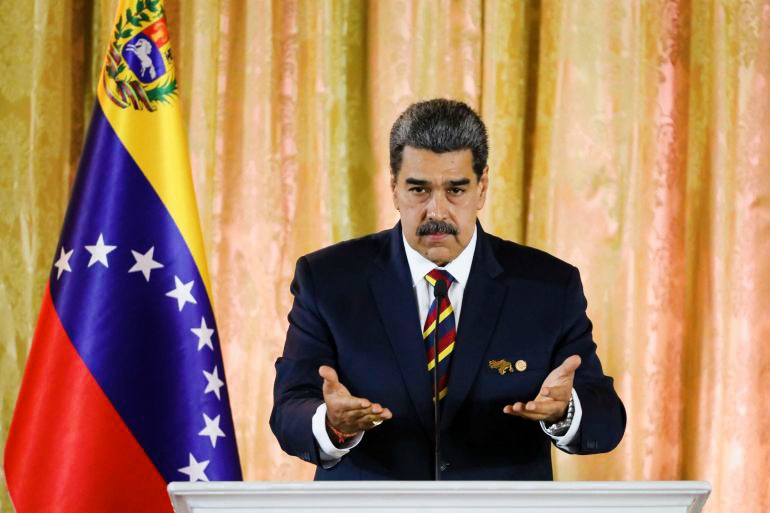In a surprising move, Venezuelan President Nicolas Maduro offered to hold direct dialogue with the administration of U.S. President Donald Trump, just days after the first U.S. military strike targeted a Venezuelan boat accused of transporting drug traffickers in the waters of the Caribbean.
In an official message published by the Venezuelan government yesterday, Maduro denied U.S. accusations that Venezuela plays a significant role in drug trafficking from South America to the world, describing them as "false claims" aimed at tarnishing his country's image and harming relations between the two parties.
Maduro said in his message to Trump:
"Mr. President, I hope we can together refute the lies that have tarnished our relations, which should be historical and peaceful ... these issues and others will always remain open for direct and frank dialogue with your special envoy Richard Grenell, to move beyond media noise and fake news."
* Official message after the U.S. strike
Caracas confirmed that the message dated September 6 was delivered to a mediator on the same day, just four days after the U.S. attack on a Venezuelan boat, which the Trump administration claimed was transporting members of the "Train de Aragua" gang involved in drug trafficking, without providing official evidence for that.
The attack resulted in the deaths of 11 people, whom the United States announced belonged to criminal gangs involved in smuggling, while the Venezuelan government confirmed that the operation was carried out without any investigation or conclusive evidence, describing it as a "violation of sovereignty".
* $50 million for capturing Maduro?
Washington continues to accuse Maduro of involvement in drug trafficking, having previously offered a huge financial reward of up to $50 million for information leading to his arrest.
The United States has also deployed warships and several F-35 fighter jets in the Caribbean, specifically in Puerto Rico - the U.S. territory - as part of what it describes as an escalation in its war against drug cartels.
* Venezuela responds with military maneuvers
For its part, the Venezuelan government strongly rejected these accusations, considering that Washington is waging an undeclared war on the country.
In response to the U.S. military escalation, Venezuela launched massive military maneuvers on the island of La Orchila, located 65 kilometers from the Venezuelan mainland.
* "Imperial plan to change the regime"
Maduro described what is happening as part of an imperial plan aimed at changing the regime in Caracas and stealing Venezuela's oil, while his defense minister described U.S. movements as an "undeclared war" that affects national sovereignty and endangers the country's security.
In this context, Venezuela called for an independent UN investigation into the recent incident that occurred in the Caribbean, asserting that the U.S. step constitutes a dangerous precedent that could lead to regional military escalation.
* Important numbers and messages from Maduro
In his message, Maduro emphasized that the percentage of drugs passing through his country does not exceed 5% of the total Colombian production, and that his forces managed to thwart and destroy 70% of those quantities during attempts to smuggle them.
The scene in the Caribbean is heating up, and diplomacy is back in the spotlight.
Will the dialogue between Maduro and Trump be the beginning of a breakthrough or just a temporary truce in a conflict where geopolitical interests and natural resources intertwine?

